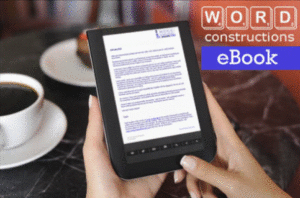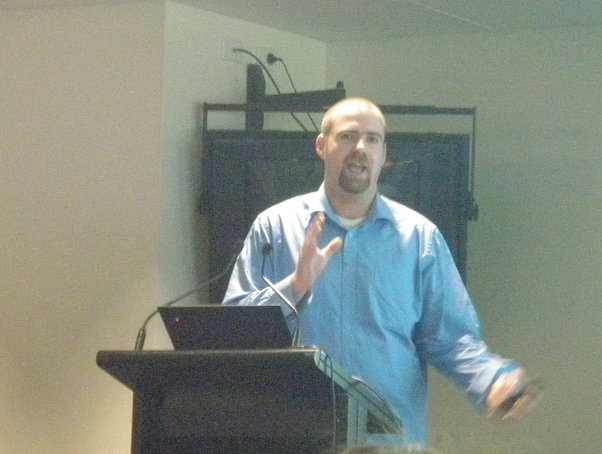I hope you find my writing and business tips and observations useful. My business and blog are dedicated to helping businesses communicate clearly and reach their potential.
Read, subscribe to my newsletter, enjoy!Tash
Developing your eBook writing skills

Creating an eBook may be easier than printing a hard-copy book, but it still takes effort and skill to make it a good eBook.
Writing an eBook appeals to many people, but not so many have done it. Is it something you have been thinking of doing?
The following eBook tips come from a ProBlogger webinar I participated in at the end of July. They look short and simple but there is a wealth of information there if you take the time to think about them.
- Always add value to your readers, whether it is information, instruction or entertainment. Without value, it will not good and is not likely to get much word of mouth promotion nor good reviews. This has to be the basis of any eBook you write – just like it is the basis of good blogs posts and articles.
[Tweet “The best basis for any eBook is adding value to your (potential) readers.”] - A blog can be a great testing ground for your eBook ideas.
- Choose an eBook topic on what could sell AND what you can actually write about! In other words, balance your skills against your readers’ needs
- An outline for an eBook can help designers start before content is complete – a time efficient option!
- In writing the solution to a problem, make sure it is a problem people recognise as a problem. For example, people buy a book on travel photography by perhaps not one in taking colour photos even though it is a basic skill and component of travel photography.
‘When writing an e-book, try to write about something with tangible results i.e. Take Better Travel Photos’ by Bright Fox Media - make sure your topic has enough content to last – an eBook is longer than a blog post or magazine article remember!
- republishing existing blog content is fine, especially if it is reorganised and updated.
- do a plan or outline of your eBook
- it is a good starting point for writing your eBook
- it provides a structure that stands no matter what order you write the content in
- enables planning your launch and content that can be used to generate interest (eg guest blog posts, social media updates)
What challenges have you faced when thinking about, planning or writing an eBook?
Launching a new product to success
I have just heard the recording for Shayne Tilley’s sessions from Problogger Event. Well, one of his sessions anyway!
Shayne calls himself a problem solver, or the internet marketing ninja, and is an expert at launching new products such as eBooks.
The session I have just listened to (and attended in real life at the event) was about launching and marketing an eBook.
eBook launch tips…
I think a key message from Shayne was that the best launch plan is individual – each person needs to mould their own launch to suit their situation.
In other words, don’t just copy others and don’t expect the same results either.
Depending on your topic, following and personality, different approaches will suit your launch better than others.
Other tips I picked up from Shayne include:
- build relationships with people in advance so you have an audience to launch to – this will help build momentum and sales
- get to a point where your product is ready – and then leave it alone and organise your launch. In business, done is better than perfect
- get an objective opinion of your launch plan and materials by asking someone else to read over them and give you some honest feedback. Even if they only catch a typo or two, it’s worth it – and they’ll probably point out other things to be added or improved
- prepare your audience – build up some anticipation and have them receptive to the message when you send it
- get the technical sales process sorted out well in advance so it is easy for people to buy from you once you launch
- don’t launch anything else until the interest in your first product has dwindled – if you can make the initial launch last longer, all the better for short and long term success so don’t divide your efforts with a second launch until the first is definitely finished
Your launches
What have you launched, or been involved in launching?
Do you have additional tips to add to Shayne’s list?
If you want to be notified next time I launch an eBook, please subscribe to my blog – I promise I’ll give you lots of communications information in the meantime, too!
Or if you want more tips from Shayne, grab a ticket to the recordings of the problogger event – for $199 you can heard Shayne talk about preparing an eBook as well as launching it as well as 20 other sessions.
Comparing books and eBooks
We’ve all grown up with traditional paper books, and if you’re like me you’ve loved them, too. Now we can get eBooks on all sorts of topics, fiction and non-fiction.
So what’s the difference between the two in terms of value? eBooks are cheaper than their paper equivalents, but does that reflect their value?
A traditional book – costs of the book in part has to cover the paper and printing process, plus transportation and storage so it is reasonable to pay more for a paper version of a book than an eBook. There is also the pleasure of curling up with a book in hand that an eBook reader just can’t replicate. I know that it is harder and slower for our eyes to read a computer screen so I assume the same apples for eBook readers of various sorts.
Both types of book involve the author’s time, the editing process (including professional editors in many cases) and marketing efforts.
An eBook can be received and the first page read within minutes of finding it, and that convenience suits many. It has the added convenience of being portable – as a friend of mine said, she could carry eight eBook travel guides with her on an overseas trip but the cost and weight of their paper equivalents would prevent carrying them.
So there is a jutification in paying for the books you choose.
However, the true value of any book is in the ideas shared by the author, along with the potential inspiration and impact on your life that comes with any good book. What you learn or imagine from the book is what you are really paying for, and that’s much harder to put a price on than the paper and printing.
PS In terms of a book that can truly change lives, have a look at End Malaria – it aims to inspire and teach while raising $20 per copy to save people form malaria. Unfortunately it appears available only though one retailer – if you find it elsewhere, please let me know!
Keeping you updated…
Over recent weeks, I have been doing various things in the background for Word Constructions. I’m quite pleased with my progress, although it is still a fair way from finished, but if I don’t tell you what I’ve done you may never know!
Before that distracts me onto a new blog post, let me tell you some of what has been happening at Word Constructions…
I have released two eBooks for sale, both of which are aimed at business people interested in learning about writing to further their business. A style guide template will be added soon and I have another eBook or two underway so keep an eye on the eBook page of my site plus the top menu to the right of all blog posts.
I have joined Twitter and started tweeting – this is a great way to know when I post something new here in the blog. It will also have occasional bits and peices about writing and business. If you’re on Twitter, drop in and say hi!

Recent Comments